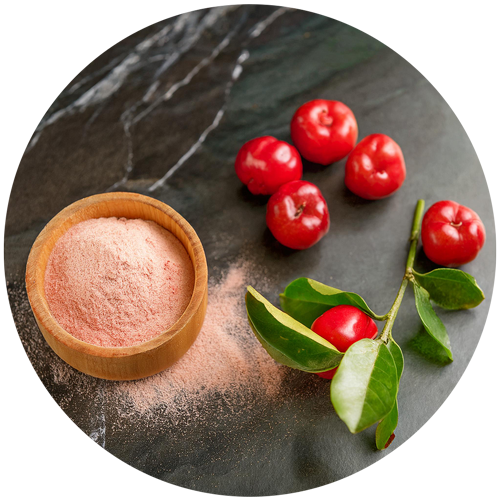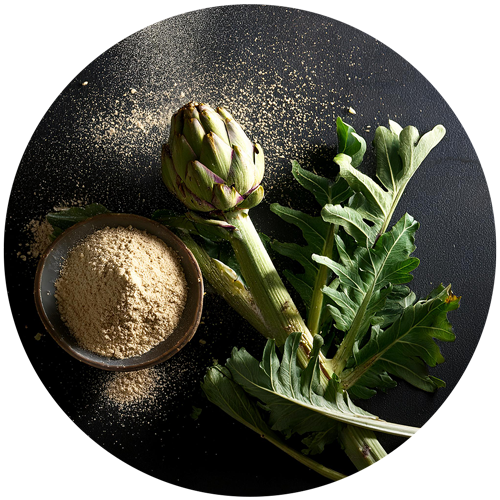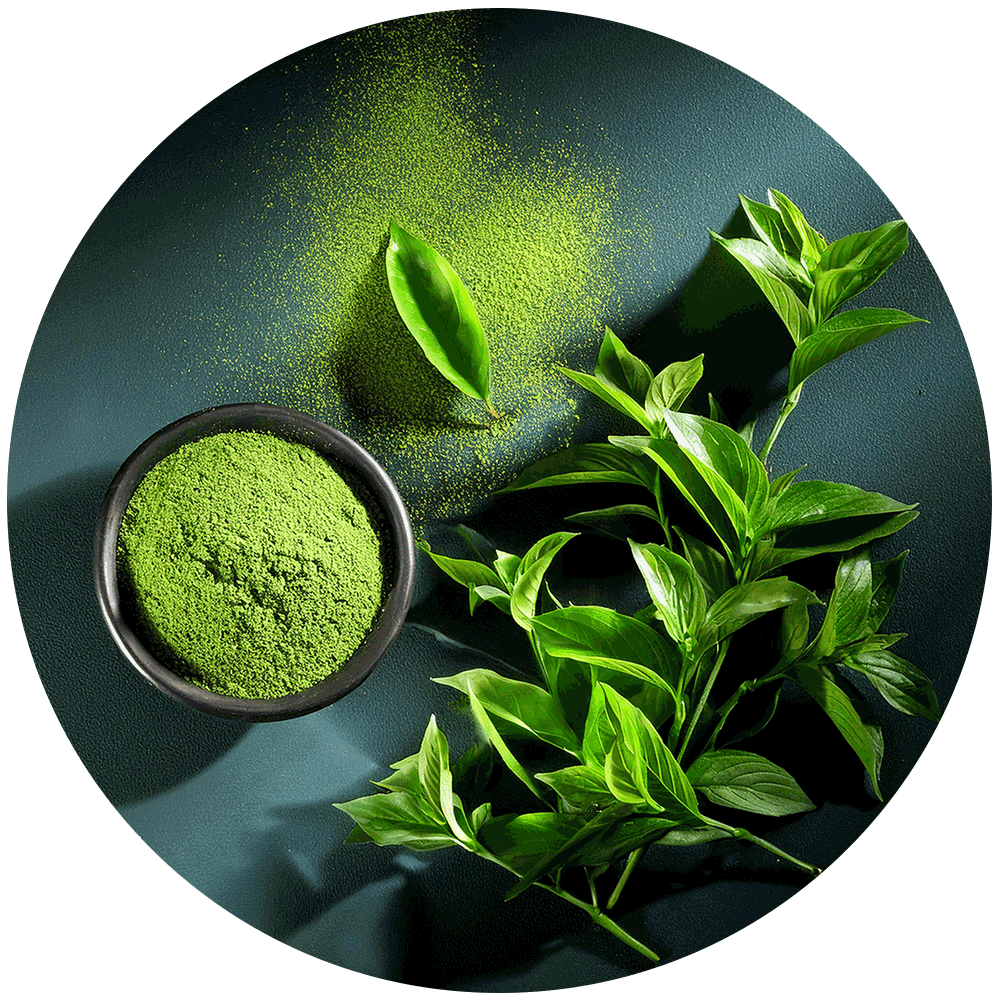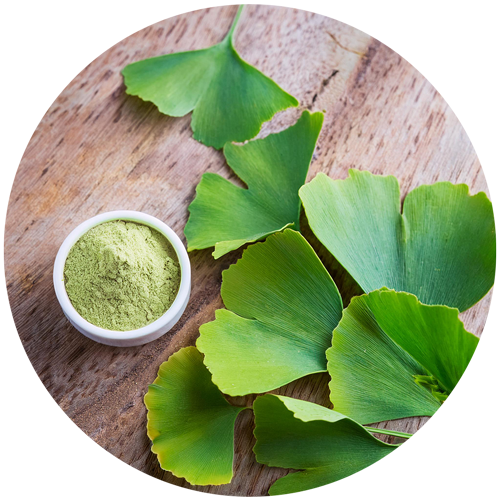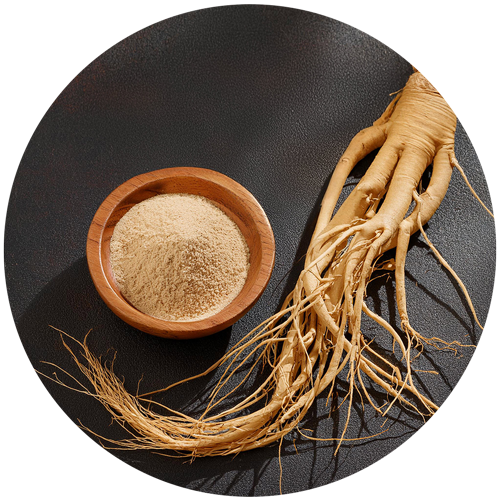Res’vine: an extract titrated with resveratrol for overall well-being!
Res’vine® is a dry grape skin extract with a trans-resveratrol content of over 5%. It is beneficial for skin, cardiovascular and cognitive health.
Thank you for your request.
We’ll get back to you as soon as possible!
Continue on page View our catalogWhy choose Res’Vine©?

What is Res’Vine©?
Res’vine® is a dry extract of grape skin (from Vitis vinifera L.) with a trans-resveratrol content of over 5%. Resveratrol is a stilbene, a non-lavonoid polyphenolic compound. Research into resveratrol began in the 90s, following the discovery of the “French Paradox”. Indeed, despite a high consumption of saturated and animal fats, the French population had a lower risk of cardiovascular disease thanks to their daily consumption of resveratrol-rich red wine. 1 Since then, numerous scientific studies have highlighted the beneficial effects of resveratrol on the cardiovascular axis2, skin health3, its antioxidant properties4 and its role in cognitive functions5.
1. Renaud S., de Lorgeril M. Lancet. 1992;339:1523-1526.
2. Tomé-Carneiro J., Gonzalvez M., Larrosa M., Garcia-Almagro F.J. et al. Mol Nutr Food Res,2012;56:810-821
3. Bastianetto S, Dumont Y, Duranton A, Vercauteren F, Breton L, Quirion R, 2010, PLoS ONE 5(9): e12935. doi:10.1371/journal.pone.0012935
4. Nakata R, Takahashi S, Inoue H. 2012. Biol. Pharm. Bull. 35: 273-9
5. Witte A.V., Kerti L., Margulies D.S., and Flöel A. E, J Neurosci,2014;34(23):7862-7870.
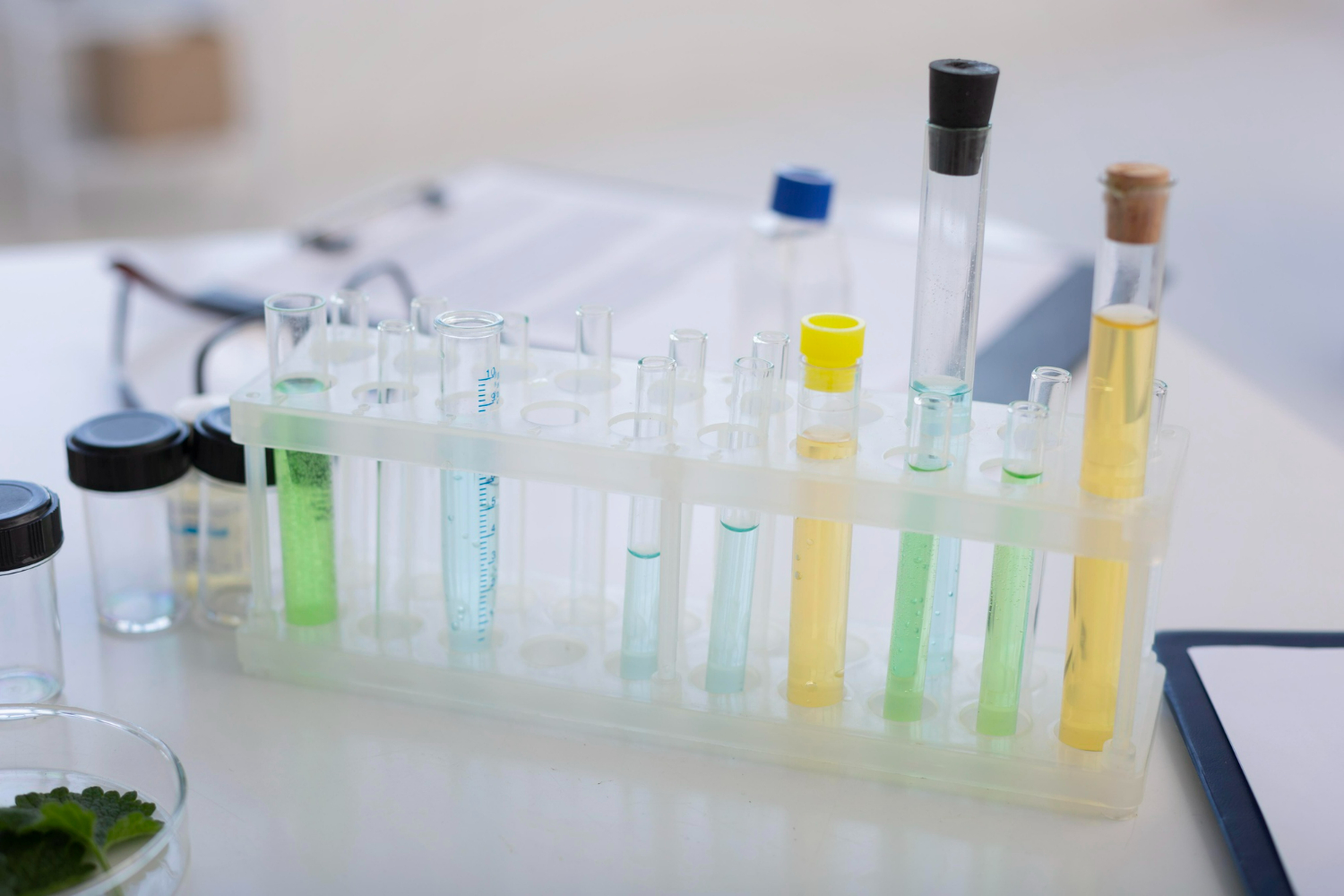
Quality control
Each batch is analyzed for trans-resveratrol content to meet the 5% HPLC standard.
Association ideas by health area
Select one or more axes:
Resveratrol-related studies
Resveratrol, the precious polyphenol found in grapes and wine, is widely studied for its beneficial effects on the cardiovascular system. 2 In a triple-blind, placebo-controlled study, 75 subjects were randomized for 6 months 3 to take either :
- A placebo (maltodextrin)
- A resveratrol-free grape extract
- One 350 mg capsule per day of resveratrol-enriched grape extract (8 mg/capsule)
After 6 months, no change was observed in the placebo group. Only LDL cholesterol (LDLc) was reduced by 2.9% (p = 0.013) in the group taking grape extract alone. On the other hand, the bad cholesterol parameters LDLc, Apolipoprotein B (ApoB)*, oxidized LDLc** and the LDLox/ApoB ratio were significantly reduced in the group supplemented with grape extract and resveratrol.
*Oxidized LDLc: also known as oxidized cholesterol, represents the oxidation of LDL molecules in the blood, reducing their affinity for hepatic receptors and resulting in less efficient purification of the circulation. **Apolipoprotein B: Apolipoproteins (or apoproteins) are proteins manufactured by the liver which are involved in LDLc transport.
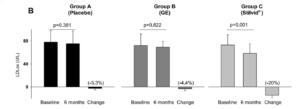
Another in vitro study demonstrated that resveratrol increases the production of sirtuin1. This so-called “longevity protein” exerts a vasodilatory effect on the endothelial system. It stimulates the production of nitric oxide, involved in reducing platelet aggregation and leukocyte recruitment, which is one of the cardiovascular risk factors.4
1.Tomé-Carneiro J., Gonzalvez M., Larrosa M., Garcia-Almagro F.J. et al. Mol Nutr Food Res,2012;56:810-821
2.Vang, O., Ahmad, N., Baile, C. A., Baur, J. A. et al., . PLoS One 2011, 6, e19881.
3.Tomé-Carneiro J, Gonzálvez M, Larrosa M, García-Almagro FJ, Avilés-Plaza F, Parra S, Yáñez-Gascón MJ, Ruiz-Ros JA, García-Conesa MT, Tomás-Barberán FA, Espín JC. Mol Nutr Food Res. 2012 May;56(5):810-21.
4.Ilwola Mattagajasingh, Cuk-Seong Kim, Asma Naqvi, Tohru Yamamori, Timothy A. Hoffman, Saet-Byel Jung, Jeremy DeRicco, Kenji Kasuno, and Kaikobad Irani, Proceedings of the National Academy of Sciences of the United States of America, Vol. 104, 2007, Pages 14855-14860.
Resveratrol also has beneficial effects on skin tissue and its appearance. It is involved in keratinocyte differentiation by stimulating the activity of certain enzymes, notably transglutaminase, involved in skin and hair cell synthesis, and in inhibiting melanogenesis*, phenomena responsible for the skin’s ageing appearance. 1
An in vitro study on keratinocyte cell lines has demonstrated that resveratrol protects keratinocytes from free radicals, in particular those induced by exposure to UV rays and other pollutants. 2
In another study, 50 subjects aged 35 to 65 were randomized for 60 days to assess the effect of grape extract supplementation on hydration, wrinkle depth, skin elasticity, roughness and brown spots. The subjects selected showed signs of aging. The intervention group was randomized to take one capsule of V.vinifera extract containing 8 mg resveratrol (i.e. 3% of capsule weight). This extract was combined with other polyphenols.3
After 60 days of treatment, results showed a significant increase in hydration and elasticity, as well as a significant decrease in roughness and depth in subjects taking the grape extract.
*Melanogenesis is the complex process by which pigmentary melanin is produced by melanocytes.
1. Ratz-Łyko A, Arct J. J Cosmet Laser Ther. 2019;21(2):84-90.
2. Chen ML,Li J,Xiao WR,Sun L,Tang H,Wang L,Wu LY,Chen X,Xie HF, Journal of Central South University, Vol. 31, 2006, Pages 635-639.
3. Buonocore D, Lazzeretti A, Tocabens P, Nobile V, Cestone E, Santin G, Bottone MG, Marzatico F. Clin Cosmet Investig Dermatol. 2012;5:159-65.
Natural grape compounds, such as resveratrol, are known for their antioxidant properties. Some studies have shown that grapes or wine may improve mental function and performance, as well as other effects of aging. In a double-blind, placebo-controlled study2, 10 subjects aged 66 to 85 with mild cognitive decline were randomized to take either 72 g/day of Vitis vinifera grape powder containing polyphenols (Resveratrol: 0.70 mg/kg) or placebo for 6 months. The study concluded that supplementation with grape powder could improve longitudinal changes in cerebral metabolism. This result correlated with improved working memory and attention performance. Another randomized, placebo-controlled study1 tested whether supplementation with 200 mg/d resveratrol for 26 weeks could improve memory performance in 46 people aged between 50 and 80. Before and after the intervention period, subjects underwent memory tasks and neuroimaging examinations to assess the volume, microstructure and functional connectivity of the hippocampus, a key region involved in memory functions. The researchers found a significant effect of resveratrol on word retention for 30 minutes compared to placebo (p = 0.038). In addition, resveratrol led to significant increases in hippocampal functional connectivity.
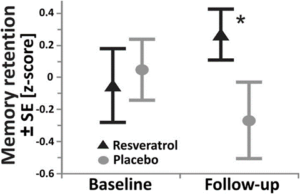
In another randomized, placebo-controlled crossover trial3 lasting 24 months, 125 post-menopausal women aged 45 to 85 were undertaken to take 75 mg trans-resveratrol or placebo twice daily for 12 months, before switching to the other treatment for a further 12 months. Results showed that resveratrol supplementation could improve endothelial, cerebrovascular and cognitive function. Moreover, compared with placebo, supplementation led to a significant 33% improvement in overall cognitive performance.
1.Witte A.V., Kerti L., Margulies D.S., and Flöel A. E, J Neurosci,2014;34(23):7862-7870.<
2.Lee J, Torosyan N, Silverman DH. Exp Gerontol. 2017 Jan;87(Pt A):121-128. doi: 10.1016/j.exger.2016.10.004. Epub 2016 Nov 14. PMID: 27856335.
3.Thaung Zaw JJ, Howe PR, Wong RH. Clin Nutr. 2021 Mar;40(3):820-829.

